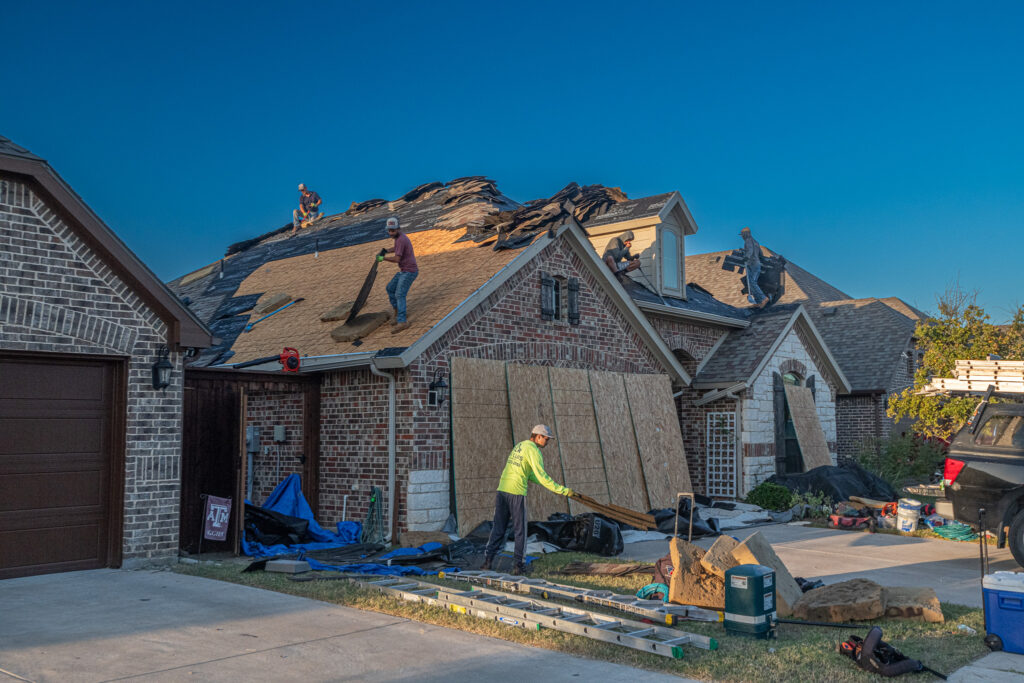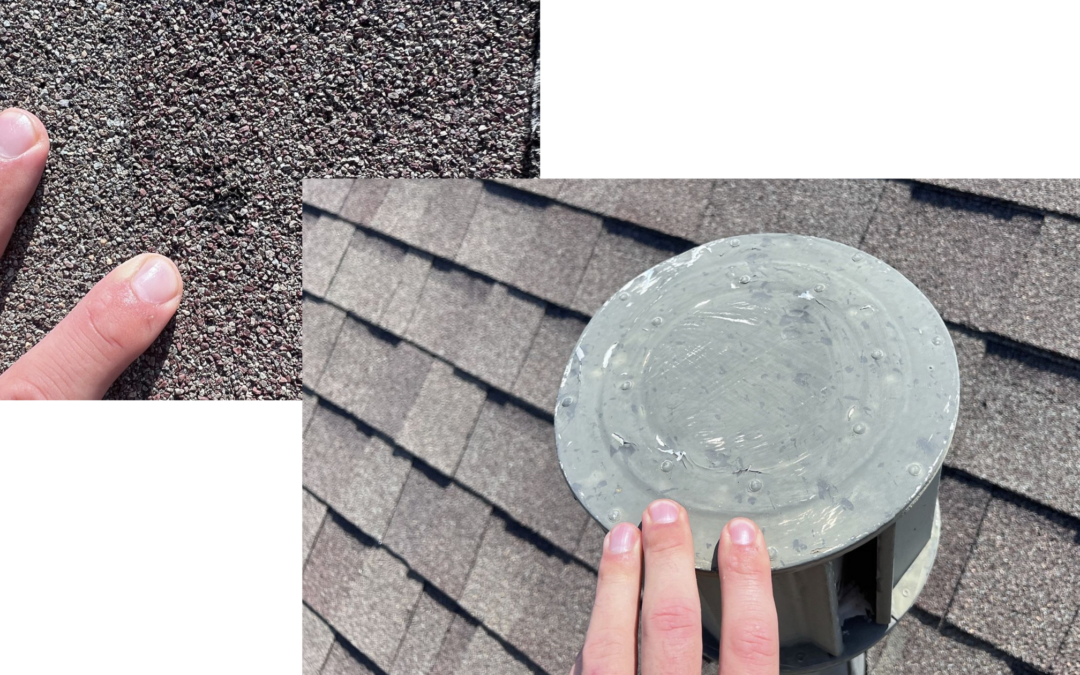As a homeowner in the Dallas-Fort Worth area, you know the unpredictable Texas weather, especially the intense storms that can bring hail. You might not know that hail damage to your roof can significantly affect your homeowners insurance policy. Many insurance providers may deny coverage or refuse to put a policy in place on homes with existing hail damage, leaving you vulnerable in the event of another storm. Texas Direct Roofing & Construction believes in keeping our customers informed so you can make the best decisions to protect your home. That’s why we wrote this quick fuide on the common reasons different types of damage, like damage from hail, can lead to losing your home insurance’s financial protection.
What Hail Damage Does to Your Roof
So what’s the big deal? Hail damage may seem like just a few dents or cracked shingles. It’s just normal wear in Texas, right? But over time, even small issues can lead to bigger problems. When hail causes damage to roofs, it can loosen or break shingles, exposing the underlayment and wood structure beneath. This exposure can allow water to seep in, leading to leaks, rot, and even structural damage. Left unrepaired, hail damage will worsen, and your roof may fail when you need it most.
Why Insurance Companies Deny Coverage for Hail-Damaged Roofs
A homeowners insurance company views hail-damaged roofs as a risk they may not be willing to take. Here are a few reasons why:
- Pre-existing Condition: If your roof has existing hail damage, it’s considered a pre-existing condition. Insurance companies don’t want to take on a property that already needs repairs. They prefer to insure homes in good condition, minimizing their risk of having to pay out on claims. In short, they want the property owner to handle it.
- Potential for Future Claims: A roof with hail damage is more susceptible to worse damage, increasing the cost of future claims. Insurers want to avoid a situation where they may need to cover repeated roof repairs or a full replacement shortly after issuing a policy.
- Increased Risk of Water Damage: Hail-damaged roofs are at a higher risk for water leaks. Water damage is one of the most expensive home repairs and can lead to additional claims for things like mold remediation, drywall repair, and structural restoration. Insurers are wary of these costly claims, and may deny coverage upfront to avoid potential payouts.

What You Can Do as a Homeowner
If you’re purchasing a new home or renewing your insurance policy, it’s crucial to have a roofing company perform a roof inspection. Insurance companies typically require a roof inspection as part of the process to determine the roof’s current condition. If there’s hail damage, they may refuse to issue a new policy until the roof is repaired or replaced.
At Texas Direct Roofing & Construction, we offer no-charge roof inspections for homeowners and insurance agents in the Dallas-Fort Worth area. Our team can quickly assess your roof’s condition and provide the necessary repairs or replacements to ensure your home qualifies for insurance coverage. Whether you’ve just experienced a hailstorm or want peace of mind, we’re here to help you navigate the process.
Don’t Wait—Get Your Roof Inspected Today
The last thing you want is to discover your insurance won’t cover your home because of hail damage. To avoid complications and ensure your roof is in top condition, schedule a free roof inspection with Texas Direct Roofing & Construction today. Protect your home, and ensure your insurance coverage is in place before the next storm hits.
At Texas Direct Roofing & Construction, we’re committed to helping homeowners protect their homes with quality roofing services. Contact us today to schedule your free inspection!
FAQs:
1. What are the signs of hail damage on a roof?
Look for cracked or missing shingles, dents in metal flashing, and granule loss on shingles.
2. Will my insurance cover a roof replacement due to hail?
Insurance companies often cover hail damage if it’s reported promptly, but pre-existing damage may not be covered.
3. How often should I have my roof inspected?
We recommend having your roof inspected after any significant storm and at least once a year for regular maintenance.

